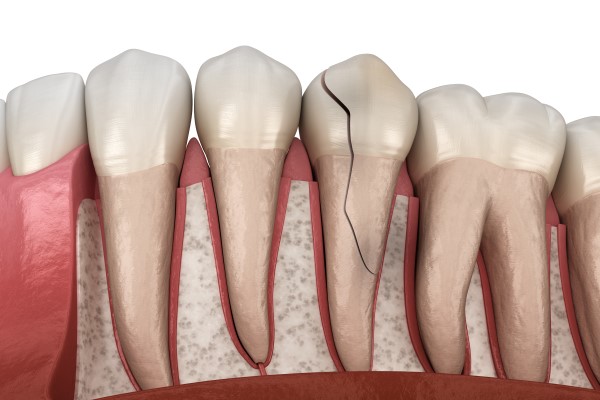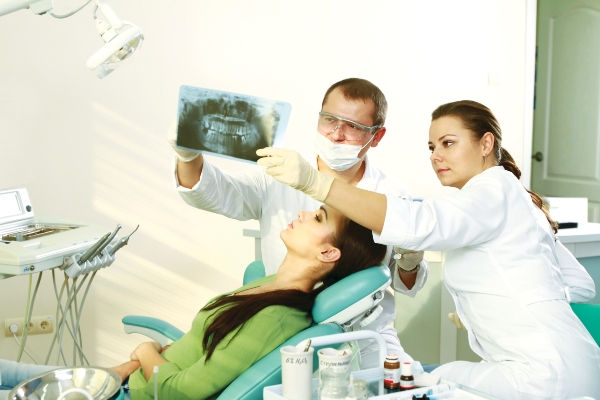Can You Fix a Broken Tooth With a Dental Crown?

A dental crown can fix a broken tooth. An accident, biting on a piece of hard food, or an intense hit to your face can cause this dental injury. You then experience pain and sensitivity, not to mention self-consciousness about the unsightly appearance of your broken tooth. It is a good thing that modern dentistry can repair a damaged tooth with a dental crown. If you want to understand how this is possible, here are the facts.
When to see a dentist for a broken tooth
Once the patient arrives at the clinic, the dentist will inspect the damaged tooth. The examination will determine if a dental crown is suitable to restore it. The repair process can begin if the dentist decides that a dental crown can restore the tooth.
It is not always obvious that a tooth is cracked or broken, and it is not uncommon for someone to have one without realizing it. These cracks or breaks are typically not visible to the naked eye, even to a dental professional. However, there are certain signifying symptoms of a cracked or broken tooth that are apparent to the patient prior to coming in for repair. These signs include:
- Inflamed gums near the injured tooth
- Pain while chewing, especially while easing up on biting pressure
- Sharp pain that comes and goes
- Sudden pain when exposed to hot, cold, or sweet foods
Types of broken teeth
Not all cracked or broken teeth need treatment. Craze lines, for example, are common in adult teeth and some consider them hardly noticeable. These fine lines only affect the outer layer of teeth and do not cause pain or require treatment. Other types of broken teeth include:
Cracked Tooth: This damage refers to a crack that extends vertically from the chewing surface toward the tooth root. The tooth is not separated into two pieces but will require treatment.
Fractured cusp: When a piece of the tooth’s chewing surface breaks off, it usually happens around a filling. This type of damage does not affect the pulp or cause pain but will need some treatment, usually in the form of a new filling or crown.
Split tooth: As the name suggests, this type of damage splits the tooth into separate parts. Depending on the location of the split, a dentist may be able to save part of the tooth.
Vertical root fracture: This refers to tooth damage that starts below the gum line at the tooth’s root and extends toward the tooth’s biting surface. The patient may be unaware of this damage as it will not cause symptoms unless the tooth is infected.
Whether or not the dentist can save the damaged tooth depends on the nature of the damage, the extent, and the location.
When dentists use a dental crown to repair a broken tooth
The dentist will begin by scraping off a thin layer of the broken tooth’s enamel. Then, the dentist will take the impression of the affected gums and teeth. The impression will serve as a pattern in creating a custom-fit, permanent crown. Cleaning the damaged tooth will happen next. Then, the dentist will place a temporary crown over the tooth while the lab creates the permanent crown. A temporary crown is not as fitting or strong as the original tooth, but it will offer some protection.
While the patient nurses the broken tooth, the fabrication of the permanent crown goes on. It takes about two weeks to finish the crown. The patient must return to the clinic when the lab completes the crown. The dentist will take the temporary crown and place the permanent crown over the damaged tooth. Once the crown is on, the dentist will assess how the patient feels when biting with the permanent dental crown. The dentist will then make the necessary adjustments before bonding the dental crown to the damaged tooth with dental cement or adhesive.
The patient must come back two times to the dental clinic to finish the process of getting the permanent dental crown since an off-site dental lab will create it. It will take some waiting, as well. If there is discomfort in wearing the temporary crown, the patient could call the dentist. Pain medications can help the broken tooth if it becomes overly sensitive.
Choosing a dental crown to repair a broken tooth
Fillings, veneers, and onlays cannot do much to repair a damaged tooth. These restoration options do not cover the entire tooth. A dental crown is ideal for restoring a broken tooth because it covers the whole tooth up to the base near the gumline. It can repair the broken tooth while simultaneously protecting it from future damage.
A broken tooth can survive trauma with the help of a dental crown
Accidents happen. A dental crown is the most effective restoration in shielding the broken tooth from infection and securing it in place. This type of restoration is in high demand because of its high level of durability. If your tooth breaks, see your dentist right away. There is nothing like having a broken tooth look new with a dental crown.
Are you considering repairing a broken tooth in the Philadelphia area? Get more information at https://frankforddentalcare.com.
Check out what others are saying about our dental services on Yelp: Dental Crowns and Dental Bridges in Philadelphia, PA.
Recent Posts
A cosmetic dentist can use a dental crown to improve your dental health. A tooth with severe decay or discoloration can be depressing. The infection could reach the pulp at any time. Placing a custom-fit dental crown can protect your tooth from further damage and injury. If you want to know more about the steps…
Dental crowns come in a range of material options, including zirconium and porcelain. These materials vastly increase the aesthetics and reliability of dental crowns as compared to past alternatives. Regardless of the material, most dental crowns look and work well. However, there are some significant variations between these options to be aware of. This article…
Dental crowns are dental restorations that cover teeth entirely for added protection, improved function, and cosmetic purposes. Dental crowns are versatile treatment solutions, and there are many reasons that a dentist may recommend this treatment for patients.The most common reasons that dentists recommend a dental crown are to protect a tooth that is weakened or…
Dental crowns are often costly and require that a dentist remove a significant amount of the tooth's structure to place them. Read on to learn about dental crown alternatives. Other treatment alternatives are sometimes available that are either less expensive or significantly less invasive. Dental crowns are frequently used to restore severely damaged teeth.The following…


